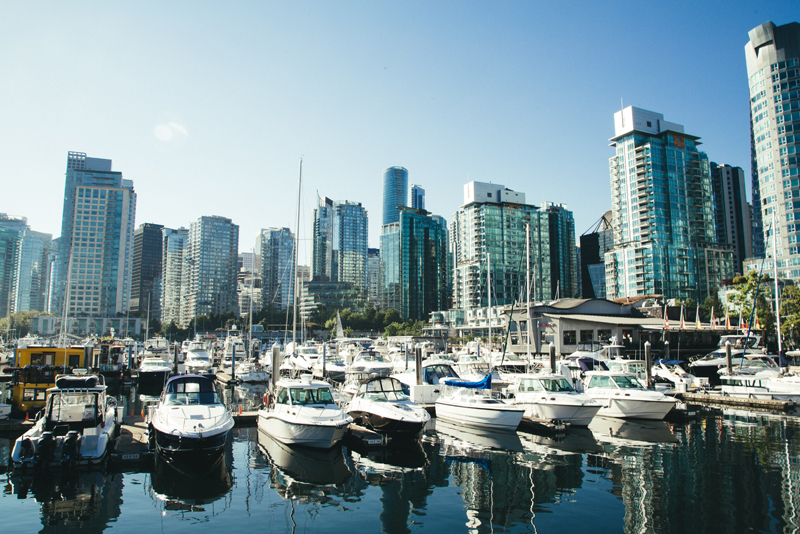A new down payment study by Generation Squeeze suggests it will take an average full-time wage earner ($47,178) 23 years to scrounge up for a 20% down payment on a house in Metro Vancouver. Just a generation ago it took 5 years to save for a 20% down payment on the average home in Vancouver.
The minimum price of admission to home ownership in Canada is currently set at 5%. The average first-time buyer in Vancouver now needs more than a decade to save for this minimum mark.
Soaring prices for detached homes in Metro Vancouver has pushed many first-time buyers into the condo and townhouse market, which has become a more affordable housing solution for such buyers.
The regional average purchase price of a 2-bedroom condo or townhouse for a first-time buyer in Metro Vancouver is $600,000, up 19% from the previous year’s average. That means the average first-time buyer would need to save more than $30,000 to cover the minimum 5% down payment and closing costs for a condo or townhouse. For a 10% down payment and closing costs, he or she would have to save at least $60,000.
The question that comes up more and more in BC’s expensive housing markets is: Where are first-time buyers getting the money?
Parental help is a big factor. In fact, 40% of young Canadians living Vancouver are increasingly looking to/expecting their parents for help with down payments. And, for parents who have seen the value of their homes rise dramatically in the last 10 years, a reverse mortgage or home equity conversion mortgage (HECM) is often an attractive way to assist adult children in entering the property market.
For those who are financially independent, saving for a down payment for a modest condo or townhouse in Metro Vancouver is not easy. Sacrifices must be made on all spending. Here are 6 ways to save your way to a condo or townhouse down payment in Metro Vancouver.
1) Move back home, even if it’s just for a year
Saving is difficult if you’re paying the average cost of rent for a 1-bedroom apartment ($1,000 per month) in Vancouver. Should you move back in with your parents, you’ll save a ton of money! You’ll pay your parents a token amount of rent ($400 per month), but most of your income will go directly into your down payment kitty.
Yearly rent at $1,300 per month: $15,600
Minus token rent payment to parents: $4,800
Total savings after one year: $10,800
2) Downsize to save for a down payment
If you are renting a large 2-bedroom apartment, it would be wise to look into moving into a 1-bedroom bachelor suite, preferably in a cheaper neighbourhood (without increasing commuting costs). You’d be surprised at how much money you can save by compromising space you really don’t need. Sell the stuff that won’t fit in your new, smaller place, or store it in your parents’/a friend’s garage. Don’t spend money on a storage unit.
Yearly rent at $1,300 per month: $15,600
Minus yearly rent at $650 per month: $7,800
Total savings after one year: $7,800
3) Give up car ownership for public transit or a bicycle (or do both)
If you own and run your own car in Metro Vancouver, you know how expensive it can be just to keep your vehicle on the road. Gas, insurance, annual maintenance, and/or a car payment can add up to a large sum of money at the end of each month. Switching to public transit or commuting to work by bicycle can save you bundles of money each month, that’s if you don’t mind getting wet for two-thirds of the year! A car-sharing service can help keep you dry on those wet and windy days.
Estimated annual cost of gas, insurance, and maintenance: $5,000
Minus estimated annual cost of a compass pass and occasional car-sharing rental: $1,200
Total savings after one year: $3,700
4) Bring your own lunch to work
Most people are either too busy or too lazy to pack their own lunch. Buying a week’s worth of groceries for lunch can almost cost the same as eating out for just two of the five days of the work week. Packing leftovers from the night before can always save you preparing lunch for the day ahead.
Estimated cost of buying lunch at $10 per day: $2,500
Minus cost of spending about $20 per week to stuff to make your lunch with: $1,000
Total savings after one year: $1,500
5) Borrow from your RRSP
You can withdraw up to $35,000 from your Registered Retirement Savings Plan (RRSP) to buy your first home. This is a great way to come up with a down payment if you already have some RRSPs. If you don’t, this may be a good way to save money for your RRSP and at the same time get a tax credit to help reduce your taxes. The only catch to this program is that you have to pay the money back to your RRSP within 15 years. If you don’t repay the money, it is treated as income and you will have to pay tax on the money you withdrew as though it were income.
6) First time home buyers’ program
The First Time Home Buyers’ Program (HBP) reduces or eliminates the amount of property transfer tax you pay when you purchase your first home. If you qualify for the program, you may be eligible for either a full or partial exemption from the tax.
If one or more of the purchasers don’t qualify, only the percentage of interest that the first time home buyer(s) have in the property is eligible.
For example, if you qualify and purchase a property with a fair market value of $400,000 with a person that doesn’t qualify you would still qualify.
7) CMHC First-Time Homebuyer Incentive
As of March 2019, Canadian Mortgage and Housing Corporation (CMHC), over three years, will provide 5% of the cost of an existing home and 10% of the price of a new home through what amounts to an interest-free loan to be repaid when the property is sold. The money would go to first-time home buyers applying for insured mortgages.
The key stipulations are:
- Users must have a down payment of at least 5%, but less than 20%;
- Household income must be less than $120,000;
- The purchase price cannot be more than four times the buyers’ household income.
For example, say you’re hoping to buy a $400,000 home with the minimum required 5% down payment, which works out to be $20,000. With the new incentive, you could receive up to $40,000 (for a new home) through the CMHC. Now, instead of taking out a $380,000 mortgage, you’d need to borrow only $340,000. On a standard mortgage at 3.5% interest, that translates into a monthly mortgage payment more than $200 lower than it would have been for the 25-year life of the loan. That’s more than $2,700 a year in potential savings.
The reward: Equity builds every time you make a mortgage payment on your first home
One of the greatest things about owning your own home is the equity that builds every time you make a mortgage payment. As you pay your mortgage, each month you own more of the property. Over time, your property value should also increase, which adds to your equity as well. If and when you sell your first home, chances are your next down payment will be larger than the sum you started with. After scrimping and saving for those first few years for the initial down payment, it will be worth it in the end.


